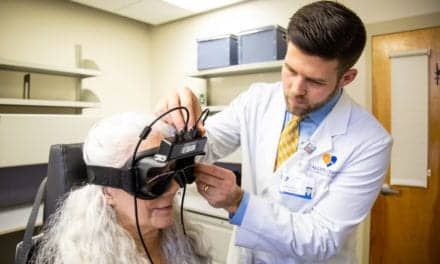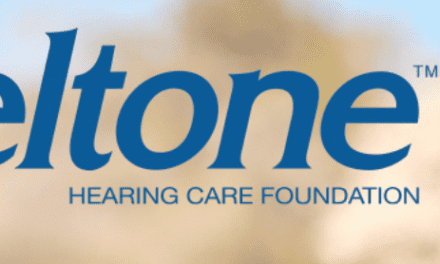Camp CHAT (Communication Habilitation via Audition for Teens) is one of several camps offered for children with special needs by the Callier Center for Communication Disorders at UT Dallas, the University of Texas at Dallas announced on its website. One of the recent weekend camps was held for teens who use hearing aids or cochlear implants, as well as their families.
Dr Linda Thibodeau, a professor in the School of Behavioral and Brain Sciences and the camp director, said that families come so they can share their experiences, and hear the benefits of using wireless microphones while participating in everyday activities.
“We provide amplification sets for the normal-hearing siblings so they can try the wireless technology. And many of them say, ‘I didn’t know it would sound like this. You wear this all day long?’ It gives the family more empathy for the one who is wearing the technology all day long,” she said.

Wireless microphones play a big part in Camp CHAT. Grad students had to design an activity involving the devices that transmitted the speech signal directly into the teens’ hearing aids or cochlear implants.
Six teens with hearing loss and their families were teamed with graduate students from the UT Dallas audiology program who ensure that teens experience the benefits of the hearing technology while having fun.
“The teens feel like they’re special because they are paired with this person who really cares about them,” Thibodeau said. “Also, if they do have an issue with the technology, they know somebody will help them right away.”
Callier Center Camps
Every summer, the Callier Center for Communication Disorders at UT Dallas offers a variety of camps for children to help improve their social and communication skills. More information about the camps is available on its website.
According to the announcement, the graduate students met with Thibodeau each of the two nights at the camp, discussed situations that occurred during the day, and planned for the next day. Each student had to design an activity involving wireless microphones that transmitted the speech signal directly into the teens’ hearing aids or cochlear implants. Most activities also had a portion in which only the hearing aids or implants were used, so parents could observe how the wireless technology allowed their children to respond faster and with greater confidence.
Thibodeau said graduate students learn a lot by working closely with the teens in outdoor, non-classroom activities. In addition, they see the teens interact with their families and gain a better understanding of the challenges they may face in everyday life.
“The grad students are very motivated. They’re getting to see more of the social side that can’t be realized in the classroom. If we can get out of the classroom and accomplish more than we can on campus, I’m thrilled,” she said.
Livingstone Hearing Aids in Lubbock, Texas, provided scholarships for the camp, and Phonak, a global provider of hearing aid solutions, donated equipment, Thibodeau said.
While one focus of the camp is to empower teens to be successful with technology, according to UT Dallas, many of them come to the event to be with others like themselves. Some attend schools where there are no other students with hearing loss.
For example, Mila Grisolia is the only student with hearing loss at Grapevine High School.
“I came here because I wanted to meet new people who have similar disabilities, and I wanted to see how we are connected, while having fun at the camp,” said Grisolia.
Similarly, Megan Cantwell is the only student with a hearing loss to attend her school in Austin.
In addition to spending time with students similar to her, Megan can learn about the hearing technology, which interests her because she wants to become an audiologist when she gets older, her mother, Janette, said. Megan received treatment at the Callier Center before the family recently moved to Austin.
Megan said the camp has been a highlight of her summer each year.
“These types of camps have changed my life—getting to be around kids who are just like me,” she said.
Source: UT Dallas
Image: UT Dallas





